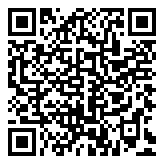
Managing in Times of Information Overload
As reported by the website, tech21century.com: “Through mobile phones, online entertainment services, the Internet, electronic mail, television, radio, newspapers, books, social media etc. people receive every day about 105,000 words or 23 words per second in half a day (12 hours) (during awake hours). According to…researchers, the main effect of information overload is that the human attention to focus is continually hampered and interrupted all too often, which does not help in the process of reflection and deeper thinking.”
It’s not that things are changing, it’s that things are changing faster and faster. The increasing velocity of change creates new and ever-greater challenges.
If your inbox is overwhelming, your to-do list never-ending, 2010 seems like it was just last year, and you have forgotten what it feels like to be caught up with everything, you may be suffering from Information Overload compounded by a case of Urgency Dependence.
Building on the best time management methods, as well as programs designed to lower frustration, diminish stress, and improve relationships both on and off the job, this session aims to help participants realize a more meaningful and satisfying life, in spite of non-stop change and the enormous volume of information coming at them 24/7.
This workshop will help leaders at all levels work more effectively, then more efficiently, while initiating and facilitating beneficial change, by communicating purposefully and persuasively in order to enable themselves and others to keep up with tomorrow.
Agenda & Objectives
Successful participants will:
- Describe how the Natural Laws of Commerce drive change.
- Identify recent changes in their lives and describe the impact of those changes.
- Learn how to lead others through the cycles of change, and prevent them from getting stuck in the past.
- Examine how balancing efficiency and effectiveness can lead to more satisfying and productive outcomes.
- Discover their own degree of Urgency Mindset.
- Assess how effectively they are using their time, and how to keep from wasting it.
- Select and plan how best to use their preferred methods of stress reduction.



